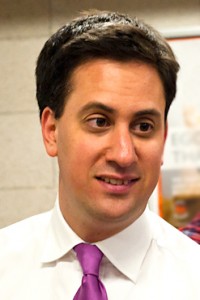We are now 6 days away from a General Election in the UK, in a context in which the whole context and workings of our politics seem to be changing profoundly: formerly minor parties take an increasingly substantial vote share, and Scotland has been overtaken by a wave of Nationalism. Yet I am dismayed at the ways that the two main party leaders are failing to recognise or adapt to those changes. There are some ways in which UK Politics since Blair, by becoming more pragmatic and less ideological, has come closer to the Middle Way and avoided the extreme ideological politics of Thatcher. Yet the major parties still seem to be behaving as though the traditional two party system was still working and the same old assumptions can be made. Even though the policies are less ideologically driven and voting much less class-based than used to be the case, the politicians of the major parties are behaving as though these features were still in place, and the coalition was just a temporary blip before we go back to traditional majority governments. They are living in cloud-cuckoo land. 
Every poll shows the Conservative and Labour parties neck-and-neck, but also both too far from a majority even to form one by coalition with the Liberal Democrats (see the Guardian seat projection for regularly updated details). Those parties fundamentally opposed to a Conservative government will vote down any attempt by Cameron to form a government, even if he has more seats than Labour. In these circumstances, the only workable coalition would involve Labour working with the Scottish Nationalist Party and probably the Lib Dems as well. Yet Ed Milliband, the Labour Leader (pictured), has explicitly ruled out even a basic ‘confidence and supply’ arrangement with the SNP, let alone a coalition. This strikes me as the stupidest political decision I have ever heard of: one that is simply failing to face up to a recognition of the conditions that are operating. After the election, there seem to be only three other possible outcomes: Ed Milliband has to make a humiliating climbdown; another election is called almost immediately due to the impossibility of forming a government; or there is a grand coalition of Labour and Conservatives, on German lines, but almost unthinkable in Britain outside the exceptional circumstances of the Second World War.
Politics is always the art of the possible, and constantly challenges our idealisations of a situation, forcing us to confront and address those of the opposition. Yet when political leaders go into a collective denial, one can only expect a very messy crisis when they have to face up to the conditions. Why will neither Cameron nor Milliband discuss coalition arrangements before the election, apart from Milliband’s foolish ruling of some of them out? These are not just the facts that confront them, but by far the most important facts that confront the electorate in deciding how to vote. People need to know not only what the parties’ manifestos are for the very unlikely event of them forming a sole majority government, but also what they will compromise, in what circumstances, and with whom. The smaller parties readily provide this information, but the major ones do not. In my view, political leaders who will not face up to these basic facts of the situation, and make them known to the electorate, scarcely deserve our vote.
